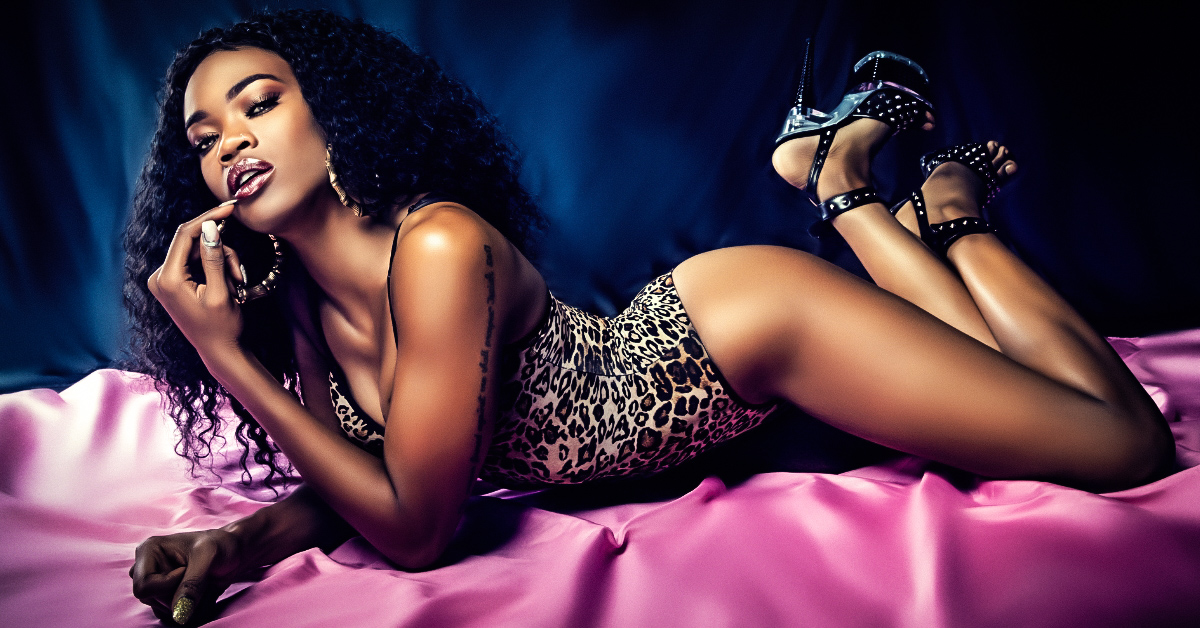The Impact of Absentee Fathers on Female Empowerment

The Unseen Men Behind the Pictures
Scrolling through Instagram, a thought-provoking post caught my attention. It featured two contrasting images, one depicting a mother and daughter dressed as dancers, while the other showcased an educated woman celebrating her daughter's graduation. Yet, something crucial was missing from both pictures—the presence of a male figure. This absence raised questions about the role of fathers in shaping the lives and aspirations of their daughters.
The Cycle of Absentee Fathers
In this scenario, we can speculate that the stripper's father was not actively involved in her life, continuing a cycle of absent father figures. Without sufficient information, it's possible that the same holds true for the daughter's father. The repercussions of such absence can perpetuate the cycle of limited opportunities and unfulfilled potential.
The Power of Maternal Guidance
On the other hand, the image of the professor and her daughter suggests a different narrative. While we cannot make definitive assumptions, it is likely that the professor's father played a significant role in her upbringing. However, her mother's strength and support were vital in directing her towards her goals and empowering her to achieve academic success.
The Missing Piece: Men in the Picture
The absence of men in these pictures is the crux of the issue. It highlights a larger problem: the lack of active male involvement in shaping the lives of their children. This absence perpetuates negative cycles and limits opportunities for growth and empowerment.
Challenging the Narrative: The Role of Men
Rather than focusing solely on what men don't want, it's crucial to address the underlying issue—the absence of men in the lives of their children. Men have the power to make a positive impact, to be present, supportive, and actively involved in nurturing their daughters' aspirations.
Reflections and Discussion
Have you come across a similar post that raises questions about absent fathers? What are your thoughts on the implications of such images? Let's open up a dialogue and explore the significance of male presence in shaping the lives of young women.
Key Points:
- Examining the impact of absent fathers on the lives of their daughters.
- Contrasting images depicting the influence of male presence or absence.
- The role of maternal guidance and support in empowering daughters.
- Highlighting the importance of active male involvement in breaking negative cycles.
- Challenging the narrative and fostering discussions about absent fathers' consequences.

Decoding the "Bad Bitch" Phenomenon

A Rise of a New Class of Women
Ladies and gentlemen let's discuss a new kind of Sorority that's been making waves lately. "Bad Bitch" has emerged as a class, a self-identifier for women who own their strengths, their beauty, their "confidence", their feminine, and their so-called sexual thirsts.
The Gender Tug-of-War
Here's where things get interesting. Men have always been regarded as the "bad boys, or dogs" and now women feel the need to one-up them by self-identifying as "bad bitches". More baffling is that men are seemingly attracted to these bad bitches. We need to start disregarding what the media pushes and begin making conscious decisions about what we truly want.
The Packaging Dilemma
Still puzzled? Let me elaborate. What do you prioritize when choosing a mate? From my observations, a majority of women prefer the "bad boy", determined mainly by his appearance - his "packaging". Similarly, most men are drawn to a pretty face and attractive body. But is this superficial criteria what we genuinely seek in a partner?
The Ideal Mate
Contrary to popular belief, I propose that what we genuinely desire isn't the "perfect face and body", but rather someone we can engage in intellectual and sexual discourse with - someone with the perfect mind.
The Aftermath of Wrong Choices
When we repeatedly fail at choosing the right person, we tend to give up entirely. For women, this often leaves you open to be chosen instead, and for men, desperation might lead to being more open to all women, not just the "bad bitches".
Debunking the "Bad Bitch" Stereotype
The "bad bitch" label carries a sexually charged notion, and the thought of it is animalistic, considering "bitch" refers to a female dog. But are we not above these base instincts? We wouldn't tolerate a misbehaving dog in our homes, so why would we choose partners based on these primal urges?
Time, the Ultimate Truth-Teller
Time is the only real measure of whether someone is truly a "bad bitch" or a "bad boy". With the right energy, transformation is possible. She might not be the right fit for one man but perfect for you, provided you channel the right energy.
Celebrity Transformations - A Case in Point
Many examples from the entertainment industry support this theory. Think about the men who passed on Jennifer Hudson, Mo'Nique, Jill Scott, or Queen Latifah. Likewise, women who rejected Anthony Anderson, Randy Jackson, Seth Rogan, or Reuben Studdard must have regrets.
Conclusion
The essence of my argument is simple: it takes time to find the right mind, but when you do, everything else will fall into place. "Bad dogs" get disciplined and left outside. So, ignore societal pressures and pursue what your heart genuinely desires.
Key Points:
- Emergence of "Bad Bitch" as a self-identifier for women.
- The packaging dilemma: the focus on physical attributes over mental attributes in choosing a mate.
- The aftermath of wrong choices and the role of time in determining the "rightness" of a mate.
- Transformation is possible with the right energy and mindset.
- Encouraging individuals to ignore societal pressures and pursue what their heart genuinely desires.

Beyond Beyoncé: Unraveling the Complex Tapestry of Feminism and Creation

Understanding Feminism: More Than a Dictionary Definition
Beyoncé, in her concerts and music, often tries to redefine feminism for her audience, bringing the concept into the mainstream. However, it's essential to delve deeper into the true meaning of feminism and its implications.
Men, Women, and the Energy They Produce
One of the underlying themes of feminism is equality. However, equality doesn't mean exact replication. Women cannot duplicate the specific energy that men produce, nor should they try. Likewise, men cannot replicate the unique energy that women embody. It's about recognizing the inherent value each gender brings to the table, rather than trying to make one fit into the mold of the other.
The Power of Creation: The Real Strength of Women
Feminism often gets misinterpreted as a call for women to shed traditional roles and adopt ones that society has historically reserved for men. However, this overlooks the fact that the power of creation, of bringing life into this world, is a uniquely feminine strength. Instead of downplaying it, we should celebrate this capability.
The Shift We Need: From Patriarchal to Matriarchal Society
Throughout history, we see remnants of the feminine touch in our cultural and societal structures. From art to language, all things considered feminine have survived the passage of time. Perhaps it's time to rethink our societal structures. Instead of a patriarchal society that places men at the top, we should consider shifting towards a matriarchal society, valuing and emphasizing the feminine aspects of creation and nurturing.
Feminism: The Misunderstood Concept
Is not about separation or devaluation, but about recognizing and appreciating the value of women in society. Feminism calls for an understanding that the ability to create life is not worthless but priceless. It's about fostering a society where women's worth is recognized and respected, where they're encouraged to protect and cherish their unique capabilities.
The Numbers Game: Reimagining Equality
At first glance, one might see men as more productive in terms of the ability to procreate, given that a man can father many children in a year while a woman can typically bear only one. However, this perspective fails to take into account the incredible journey of pregnancy and childbirth that women undergo. It’s not about quantity; it’s about the quality and profundity of the experience.
The True Meaning of Feminism: Love, Not Competition
Ultimately, the term "feminist" should not be viewed as a divisive label but as a symbol of love and unity. As Chimamanda Ngozi Adichie poignantly put it, "Feminist: the person who believes in the social, political, and economic equality of the sexes". This belief should not pit men and women against each other but should promote mutual respect, understanding, and love.
Remember, always be authentically selfish, and by witnessing your happiness, others can envision the same for themselves. “If you can’t see your success, change your vantage pointe."
Key Points
Feminism:
- Emphasizes the unique strengths and capabilities of women rather than trying to replicate men's roles.
- Calls for a societal shift towards valuing and emphasizing the feminine aspects of creation and nurturing.
- Should promote love and unity, not competition, among genders.

Unmasking the Alpha Male: Society's Impact on Relationships

Unveiling the Truth: Society's Impact on Relationships and the Alpha Male
In the pursuit of love and partnership, societal influences shape our behavior and expectations. Let's explore the concept of the Alpha Male, its effects on both men and women, and the challenges it presents in modern relationships. Brace yourself for a thought-provoking journey through the complexities of contemporary love!
The Female Quest for an Alpha Male: Body Image and Evolutionary Desires
Historically, women have sought mates who possess qualities indicating their ability to provide and protect. Staying in shape was seen as a sign of readiness for childbearing, ensuring the survival of offspring. However, societal expectations often lead to body image concerns, weight gain post-mating, and the perceived loss of care. But is it really about getting comfortable, or is there a deeper biological purpose behind this shift?
The Burden of the Modern Alpha Male: Conflicting Roles and Expectations
In today's world, the traditional roles of men have evolved, causing confusion and conflict. The pressure to be the dominant, protective provider clashes with the increasing options and changing dynamics. Men have lost touch with their true Alpha nature, resulting in body image insecurities, misguided attempts to appear dominant, and an undermining of genuine confidence. The pursuit of online validation and the abandonment of true connection add further complexity.
The Importance of Authenticity: Embracing Masculinity and Emotional Growth
To reclaim the essence of true Alpha males, it is crucial to embrace authenticity and emotional growth. Peacock displays and artificial toughness are mere facades that fail to attract genuine connections. It's time to rediscover the courage to approach with confidence, the ability to communicate openly, and the commitment to provide safety and support for our partners and offspring.
The Role of Loyalty and Protection: Rebuilding Relationships and Nurturing Families
To rebuild relationships, both men and women must acknowledge their respective contributions to their decline. However, it is essential to address the issue of Beta males pretending to be Alpha. True Alpha males understand loyalty and protectiveness. By stepping up and actively engaging in the role of protector, we create a foundation of trust and security for our loved ones. This, in turn, fosters healthy family dynamics and nurtures the growth of future generations.
Key Takeaways
- Society's expectations impact both men and women in relationships.
- Authenticity and emotional growth are vital for true Alpha males.
- Loyalty and protection play a crucial role in rebuilding and nurturing relationships.
Let's challenge the societal norms and redefine masculinity, embracing our true Alpha qualities while fostering respect, love, and support within our relationships. It's time to break free from the limitations imposed by societal constructs and create a new paradigm of authentic connection.

